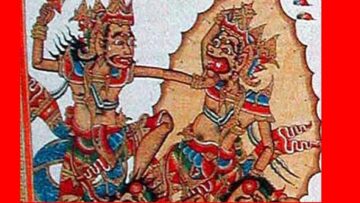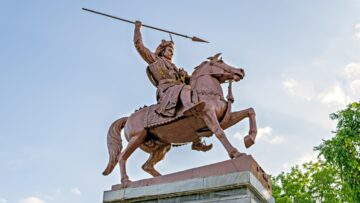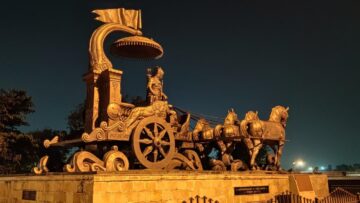Let’s talk about the role of a CEO and what advice would a board advisor give to an incoming CEO? Yes, this is still about the Mahabharta, but we are going to take a detour before getting there.
To strive to maximize shareholder value, to watch out for market trends and unforeseen macroeconomic headwinds, to hire the best, to not ignore the advice of advisors, to put down indiscipline with a firm hand, to be approachable yet not play favourites, and so on. This is the basic ingredient from which tens of thousands of management books, seminars, articles, and more are churned out each year.
In a modern context, while the use of the word “king” may be anachronistic, the basic import of the the Raj-dharma parva of the Mahabharata retains much of its value and relevance. If you substitute the word “king” with “chief minister” or “prime minister”, or with “CEO” or “Managing Director”, the advice given to the king then could very well be applied to the leaders of today.
When asked by Yudhishthira to elaborate on the true nature of rajadharma, Bhishma’s advice is worth its weight in governance gold. Management gurus make a killing and fortune, but the Mahabharata dispenses this advice for free. In this post, therefore, let’s look at the advice imparted by Bhishma on the ideal’s king’s temperament.
Bhishma exhorts a king to always uplift himself and strive to exert forcefully to achieve his objectives, for “Without the exertion, fortune never makes a king’s objectives successful.” Bhishma acknowledges the role of destiny in the achievement of an objective, but is also clear that “enterprise is superior to destiny.” In other words, do not look to ride a market wave or rest on the laurels of a dominant market share.
A separation of powers is one of the building blocks of any modern governance structure. Similarly, Bhishma was very clear that there needed to be a clear separation between the brahmana, who represented intellect and knowledge, and the kshatriya king, who represented power. Having said that, it was also clear that intellect had to temper power. “Fire emerged from water. Kshatriyas emerged from brahmanas. Iron emerged from stone. The energy of each of these is pacified by the source.” When a leader and the intellectual are in conflict, both are destroyed.
If you were to extent this analogy to the modern day, product engineering and sales should be separate, but should talk to each other. Haven’t we heard of tales of corporations meeting their demise when product didn’t listen to sales, and vice-versa? The salespeople at Motorola had been clamouring for a digital phone, the market was demanding a digital phone because that’s where technology was heading, and yet, when engineering brought out their newest phone, it was an analog device. Thus began the slow, and terminal, decline of one the most storied of American companies. This was in 1997 (read this Bloomberg article). Large, successful, companies can also die if the doers and thinkers don’t talk to each other.
Coming to the third point, people expect to see a certain level of maturity and equanimity in the behavior of their leaders. There is a middle ground that the king has to tread – “If a king is mild, everyone always disregards him. But if a king is fierce, everyone is troubled.” But a “mild” king, one who becomes too convivial with his subordinates, comes in for harsh criticism from the epic. A mild king, who always forgives – a goody, two-shoes, if you may – “everyone always disregards him” and “is always subjugated by the inferior.” His subordinates “toy with him as they will, like with a bird tied to a string.” Bhishma was unambiguous on this point. The leader who sets objectives but fails to act when they are not met is setting himself up for failure. Deadlines lose their credibility if a failure to meet those timelines is not met with some action. CEOs who fire people at the first sign of slippage or failure end up with rubber-stamp yes-men. On the other hand, if they tolerate laxity, they will end up with people pulling in separate directions in pursuit of their own fiefdoms.
All this is from one single chapter in the Rajdharma parva, the 56th in Shanti Parva. Imagine what a treasure awaits us in the rest of the parva!
Note:The translation is based on Shri Bibek Debroy’s English translation of the unabridged Mahabharata.
Disclaimer: views expressed are personal.
Disclaimer: The opinions expressed in this article belong to the author. Indic Today is neither responsible nor liable for the accuracy, completeness, suitability, or validity of any information in the article.










